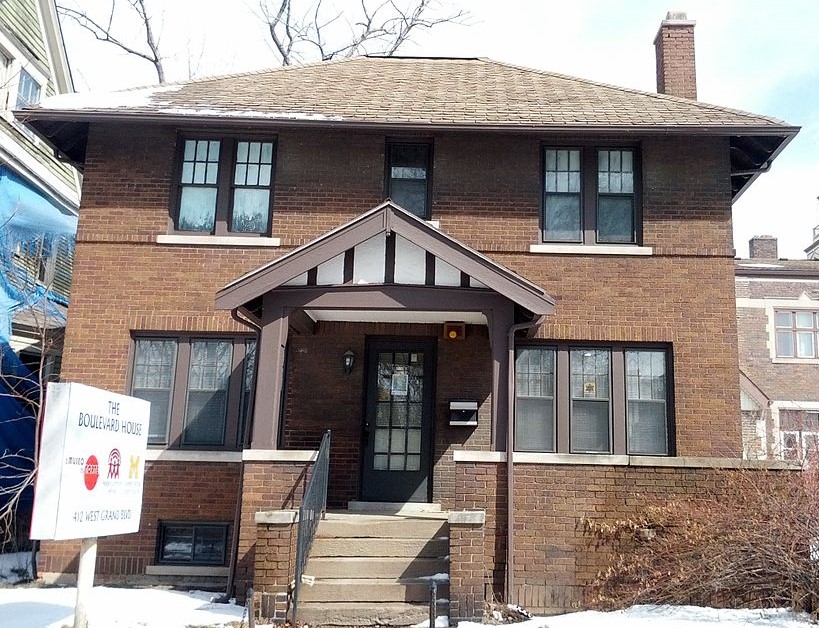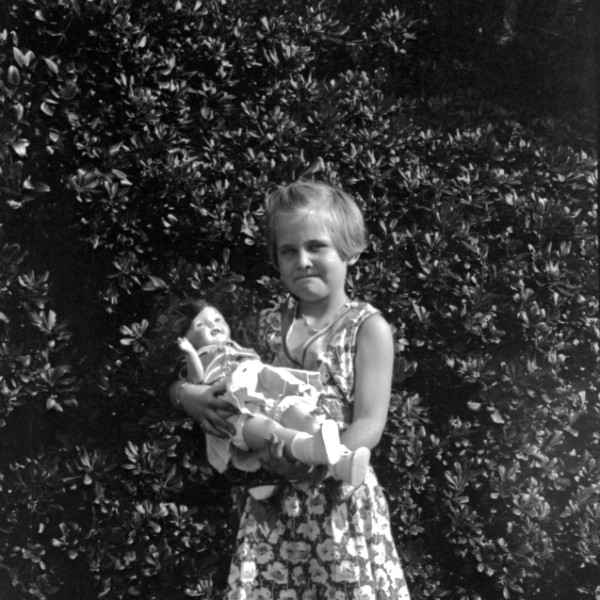|
Boulevard House
The Boulevard House, now the Southwest Detroit Community House, is located in Southwest Detroit, Detroit, Michigan and situated right on the Boulevard, in the articulation of Mexicantown, Detroit, Mexicantown, Mexican Village, and Hubbard Farms, Detroit, Hubbard Farms. It is the University of Michigan's Settlement movement, settlement house, providing space for Praxis (process), praxis among community scholars, community activists and residents. Since it was established in mid-2012, the Boulevard House has been used to create a place-based space to develop projects, engage community and support social change. History of the Settlement House Movement The Boulevard House reflects the traditions and approach of the Settlement movement, settlement house model in U.S. social work. Inspired by England's Toynbee Hall, the approach was adopted in the United States in the late 1880s and 1890s with such organizations as Stanton Coit's Neighborhood Guild (New York's Lower East Side), Lillia ... [...More Info...] [...Related Items...] OR: [Wikipedia] [Google] [Baidu] |
Detroit
Detroit ( , ) is the List of municipalities in Michigan, most populous city in the U.S. state of Michigan. It is situated on the bank of the Detroit River across from Windsor, Ontario. It had a population of 639,111 at the 2020 United States census, 2020 census, making it the List of United States cities by population, 26th-most populous city in the United States and the largest U.S. city on the Canada–United States border. The Metro Detroit area, home to 4.3 million people, is the second-largest in the Midwestern United States, Midwest after the Chicago metropolitan area and the 14th-largest in the United States. The county seat, seat of Wayne County, Michigan, Wayne County, Detroit is a significant cultural center known for its contributions to music, art, architecture and design, in addition to its historical automotive and industrial background. In 1701, Kingdom of France, Royal French explorers Antoine de la Mothe Cadillac and Alphonse de Tonty founded Fort Pontc ... [...More Info...] [...Related Items...] OR: [Wikipedia] [Google] [Baidu] |
Empowerment Evaluation
Empowerment evaluation (EE) is an evaluation approach designed to help communities monitor and evaluate their own performance. It is used in comprehensive community initiatives as well as small-scale settings and is designed to help groups accomplish their goals. According to David Fetterman, "Empowerment evaluation is the use of evaluation concepts, techniques, and findings to foster improvement and self-determination". An expanded definition is: "Empowerment evaluation is an evaluation approach that aims to increase the likelihood that programs will achieve results by increasing the capacity of program stakeholders to plan, implement, and evaluate their own programs." Scope Empowerment evaluation has been used in programs ranging from a fifteen million dollar Hewlett-Packard corporate philanthropy effort to accreditation in higher education and from the NASA Jet Propulsion Laboratory’s Mars Mars Rover project to battered women's shelters. Empowerment evaluation has been used b ... [...More Info...] [...Related Items...] OR: [Wikipedia] [Google] [Baidu] |
Marxism
Marxism is a political philosophy and method of socioeconomic analysis. It uses a dialectical and materialist interpretation of historical development, better known as historical materialism, to analyse class relations, social conflict, and social transformation. Marxism originates from the works of 19th-century German philosophers Karl Marx and Friedrich Engels. Marxism has developed over time into various branches and schools of thought, and as a result, there is no single, definitive " Marxist theory". Marxism has had a profound effect in shaping the modern world, with various left-wing and far-left political movements taking inspiration from it in varying local contexts. In addition to the various schools of thought, which emphasize or modify elements of classical Marxism, several Marxian concepts have been incorporated into an array of social theories. This has led to widely varying conclusions. Alongside Marx's critique of political economy, the defining cha ... [...More Info...] [...Related Items...] OR: [Wikipedia] [Google] [Baidu] |
Transformative Social Change
Transformative social change is a philosophical, practical and strategic process to affect revolutionary change within society, i.e., social transformation. It is effectively a systems approach applied to broad-based social change and social justice efforts to catalyze sociocultural, socioeconomic and political revolution. In seeking to integrate and then politicize personal development and social development as an overarching approach to social change at multiple levels, addressing a wide range of issues, using holistic, nonviolent methods, it may be best classified as a new social movement. Rather than focus on particular issue(s), it seeks to impact the culture of left of center social movement and organizing work. However, by considering the dismantling of and liberation from oppressive systems, including economic, as core to its goal, it defies even definitions put forth for new social movements. As a comprehensive approach to progressive social change, it distinguishes itself ... [...More Info...] [...Related Items...] OR: [Wikipedia] [Google] [Baidu] |
Feminist Theory
Feminist theory is the extension of feminism into theoretical, fictional, or Philosophy, philosophical discourse. It aims to understand the nature of gender inequality. It examines women's and men's Gender role, social roles, experiences, interests, chores, and feminist politics in a variety of fields, such as anthropology and sociology, communication, media studies, psychoanalysis,Chodorow, Nancy J., Feminism and Psychoanalytic Theory' (Yale University Press: 1989, 1991) political theory, home economics, Feminist literary criticism, literature, education, and philosophy. Feminist theory often focuses on analyzing gender inequality. Themes often explored in feminist theory include discrimination, objectification (especially sexual objectification), oppression, patriarchy,Gilligan, Carol, 'In a Different Voice: Women's Conceptions of Self and Morality' in ''Harvard Educational Review'' (1977)Lerman, Hannah, ''Feminist Ethics in Psychotherapy'' (Springer Publishing Company, 1990) ... [...More Info...] [...Related Items...] OR: [Wikipedia] [Google] [Baidu] |
Strength-based Practice
Strength-based practice is a social work practice theory that emphasizes people's self-determination and strengths. It is a philosophy and a way of viewing clients (originally psychological patients, but in an extended sense also employees, colleagues or other persons) as resourceful and resilient in the face of adversity. It is client-led, with a focus on future outcomes and strengths that people bring to a problem or crisis. When applied beyond the field of social work, strength-based practice is also referred to as the "strength-based approach", including strength-based leadership and strength-based learning communities. This approach can focus on individuals’ strengths as well as wider social and community networks. History Social worker Bertha Reynolds was a proto-theorist for this practice. She criticized the American social work tendency to adopt a psychoanalytic approach (and the corollary dependence on the DSM IV) with clients. It was formally developed by a team fr ... [...More Info...] [...Related Items...] OR: [Wikipedia] [Google] [Baidu] |
Ecological Systems Theory
Ecological systems theory is a broad term used to capture the theoretical contributions of developmental psychologist Urie Bronfenbrenner. Bronfenbrenner developed the foundations of the theory throughout his career, published a major statement of the theory in American Psychologist, articulated it in a series of propositions and hypotheses in his most cited book, ''The Ecology of Human Development'' and further developing it in ''The Bioecological Model of Human Development'' and later writings.Bronfenbrenner, U. (1979).The ecology of human development. Cambridge, MA: Harvard University Press. A primary contribution of ecological systems theory was to systemically examine contextual variability in development processes. As the theory evolved, it placed increasing emphasis on the role of the developing person as an active agent in development and on understanding developmental process rather than "social addresses" (e.g., gender, ethnicity) as explanatory mechanisms. Overview Ecol ... [...More Info...] [...Related Items...] OR: [Wikipedia] [Google] [Baidu] |
Empowerment
Empowerment is the degree of autonomy and self-determination in people and in communities. This enables them to represent their interests in a responsible and self-determined way, acting on their own authority. It is the process of becoming stronger and more confident, especially in controlling one's life and claiming one's rights. Empowerment as action refers both to the process of self-empowerment and to professional support of people, which enables them to overcome their sense of powerlessness and lack of influence, and to recognize and use their resources. As a term, empowerment originates from American community psychology and is associated with the social scientist Julian Rappaport (1981). In social work, empowerment forms a practical approach of resource-oriented intervention. In the field of citizenship education and democratic education, empowerment is seen as a tool to increase the responsibility of the citizen. Empowerment is a key concept in the discourse on promoting ... [...More Info...] [...Related Items...] OR: [Wikipedia] [Google] [Baidu] |
Paulo Freire
Paulo Reglus Neves Freire (19 September 1921 – 2 May 1997) was a Brazilian educator and philosopher whose work revolutionized global thought on education. He is best known for ''Pedagogy of the Oppressed'', in which he reimagines teaching as a collaborative act of liberation rather than transmission. A founder of critical pedagogy, Freire’s influence spans literacy movements, liberation theology, postcolonial education, and contemporary theories of social justice and learning. He is widely regarded as one of the most important educational theorists of the twentieth century, alongside figures such as John Dewey and Maria Montessori, and considered "the Grandfather of Critical Theory." Biography Freire was born on 19 September 1921 to a middle-class family in Recife, the State Capital of Pernambuco in the Brazilian Northeast. He became familiar with poverty and hunger from an early age partly due to the effects of the Great Depression. In 1931, Freire moved with his f ... [...More Info...] [...Related Items...] OR: [Wikipedia] [Google] [Baidu] |
Praxis (process)
Praxis is the process by which a theory, lesson, or skill is enacted, embodied, realized, applied, or put into practice. "Praxis" may also refer to the act of engaging, applying, exercising, realizing, or practising ideas. This has been a recurrent topic in the field of philosophy, discussed in the writings of Plato, Aristotle, St. Augustine, Francis Bacon, Immanuel Kant, Søren Kierkegaard, Ludwig von Mises, Karl Marx, Antonio Gramsci, Martin Heidegger, Hannah Arendt, Jean-Paul Sartre, Paulo Freire, Murray Rothbard, and many others. It has meaning in the political, educational, spiritual and medical realms. Origins The word ''praxis '' is from . In Ancient Greek the word praxis (πρᾶξις) referred to activity engaged in by free people. The philosopher Aristotle held that there were three basic activities of humans: ''theoria'' (thinking), '' poiesis'' (making), and ''praxis'' (doing). Corresponding to these activities were three types of knowledge: theoretical, th ... [...More Info...] [...Related Items...] OR: [Wikipedia] [Google] [Baidu] |
Stamps School Of Art & Design
The Stamps School of Art and Design (formally the Penny W. Stamps School of Art and Design) is the school of art and design of the University of Michigan located in Ann Arbor, Michigan. The school offers graduate and undergraduate degrees in art and design. Established as an independent unit in 1974, A&D is one of 19 schools and colleges at the University of Michigan. It is fully accredited by the National Association of Schools of Art and Design. The Stamps School of Art & Design's academic programs and projects focus on generating new creative work, integrating the cultures of art and design, and engaging with the University, region, and national and international communities. In 2012, it was named for Penny and E. Roe Stamps in honor of their longtime support of the school, which included a $32.5 million gift in September 2012. Pre-College Programs ThStamps Pre-Collegeprograms were established in 2008. The Stamps School of Art & Design offerSpring Studioclasses anSummer Stud ... [...More Info...] [...Related Items...] OR: [Wikipedia] [Google] [Baidu] |





